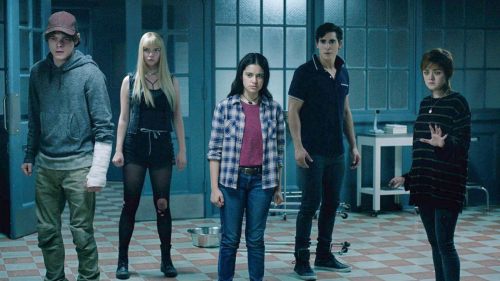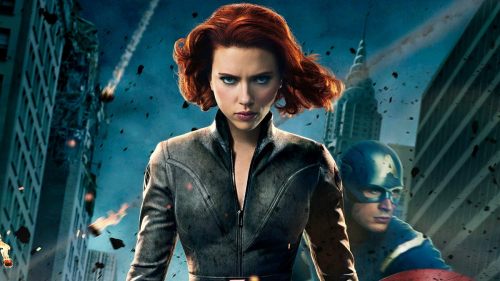Why FROZEN’s Blockbuster Success Is Still So Important
It's hard to look at the list of films that were number one at the box office in recent years and find anything particularly inspiring or meaningful. Lord of the Rings, Marvel films (which I do like, by the way, so put your pitchforks down), Transformers...these movies have their fans and their blockbuster success makes sense, but what does it signify aside from overt fandom? We're writing about blockbuster films this month, and reflecting upon the list of choices didn't particularly inspire me much. While Frozen has been written about extensively (and not that long ago, really), its success in comparison to other number one films in recent years is one that actually has meaning.
Number one at the box office two years ago, Frozen went on to become the sixth highest-grossing film of all time, Disney's most successful film to date, and the highest-grossing animated film of all time. I'm not a box office person - I don't study and report on it, but in this particular case, Frozen's achievement means a lot.
In recent years, Disney's signature Princess films have evolved, moving away from big-eyed princesses who need the love of a man to free them from some oppressive magical force, young women who need a man to rescue them - these girls are becoming more independent, more self-reliant, empowering young girls and teaching little boys that they don't need to white knight their female counterparts. Even boys can watch a movie like Frozen and relate to characters like Elsa and Anna, regardless of gender.
And gender is why Frozen is such a huge deal. It's a story about sisterhood, subverting our expectations about Disney Princess films and fairy tales in general - there's the reclusive Elsa who has the power to control ice and snow, but doesn't have the power to keep her feelings in check, and her emotional outbursts unleash a torrent of frosty chaos, hurting everyone around her. And there's the kind, naive Anna, who's suffered in isolation for her sister's sake.
Frozen is a layered narrative, and unpacking its themes and metaphors is a delight - it's the smartest animated film Disney has ever released, one that speaks to girls, boys and adults alike. As she came of age, Elsa's powers became more dangerous, leading her parents to lock her up in an effective act of repression. Coming of age is terrifying for many girls, as our bodies change and we discover new "powers" and our emotions run rampant and feel uncontrollable. Elsa and Anna's parents contain Elsa because it's in her best interest, but it's an oppressive act to impose upon a young girl - to tell her that what makes her special is terrible, that her feelings are bad and wrong, that she cannot be trusted to make the right choices or have the freedom to make mistakes and learn from them. Elsa is robbed of her adolescent experience and the chance to take agency for herself.
One could also read (as Devin previously has) Elsa's narrative as a metaphor for coming out - as a child, Elsa was led to believe that her urges were bad, that even though she was born this way and couldn't help it, there was something horribly wrong with her. After fleeing Arendelle and secluding herself in an ice castle of her own creation (a symbolic act, signifying how she's closed off her heart to others), Elsa learns to embrace her feelings and her power, to embrace that she was born this way and it's just who and how she is. "Let It Go" can be interpreted as a celebratory coming out anthem.
Elsa's reaction to Anna's engagement to Prince Hans is the reaction to the idea that she'll be abandoned, her only emotional support and refuge taken away from her. It's a particular brand of sibling jealousy - or the sort of jealousy you feel when your best friend tells you they're getting married, and you know they won't be able to devote so much time to caring for your problems anymore. (See also: Bridesmaids.)
The conclusion of the whole Hans plot is the film's real mic drop moment - when Elsa strikes Anna in the heart, the only thing that can keep her younger sister from succumbing to death is an act of true love. It's a metatextual component of the film, and, as if the characters themselves have seen too many Disney Princess movies, they set about trying to reunite Anna with Hans so he can kiss her death away. And when Hans reveals himself to be an A+ jerk of the highest order, leaving Anna to die, it falls to the much more charming Kristoff to prove his love.
But what saves Anna, ultimately, is Elsa's sacrifice, jumping in front of Anna as Hans tries to kill her. That act of sacrifice is the ultimate act of pure love, but it's a triumphant moment not only in the film, but for all Disney Princess films - a girl doesn't need a prince to save or protect her. That sort of love is incomparable to the love of a sister or a best friend, unwavering and unconditional.
For all of the reasons above, Frozen's success is undeniably a huge deal - it proves not only that there is a market for female-driven narratives, but that when done well, audiences of both genders enjoy them. The Hunger Games franchise also proves this. The success of films like Bridesmaids and the fan adoration of heroes like Black Widow also proves this. Then you take into account the box office reports for Guardians of the Galaxy - women made up just over half of that film's ticket sales, proving that there should be no such thing as gender-specific media. And yet, studios are still terrified of taking risks on female-driven films, firmly believing that "movies for women" are not successful and that no one really wants them, willfully ignoring the proof before them.
It's not that we only want female-driven narratives, but we want women in all media to be represented well - we are all the things men are: brave, strong, flawed, weak, good, bad and every shade in between. The "strong female character" is a designation that insinuates that the only positive representation of women is a flawless one. Elsa is hardly flawless. Anna isn't either. That's what makes them relatable and real, as computer generated as they may be. A strong female character is one who is prominent in her narrative, who has agency and empowers us through her relatability.
The success of Frozen means so much when you reflect on why people love it. It's the why of its success, not the how. Transformers movies are always huge, but why do people love them? The prosperity of those films doesn't resonate with anyone, nor does it signify anything of importance - it's empty-headed.
But the achievements of Frozen are meaningful and vast. That film alone should be enough impetus for change, and yet here we are, with women still relegated to lame supporting roles, playing moms and wives and girlfriends and all manner of characters who serve to lift men up. Here we are with studio execs sending skeptical emails about giving a woman her own solo superhero film because we had a few crappy ones, never once considering that if female-driven narratives are approached smartly and crafted well, people (not just women) will like them.



